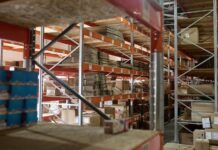The top worldwide association representing the nonwovens and allied sectors, EDANA, has voiced worry over the European Commission’s possible choice to apply countermeasures in reaction to US tariffs on EU steel, aluminium, and other derivative products recently imposed. The EU-US tariff war threatens the nonwovens sector.
Representing more than 250 businesses throughout the nonwovens supply chain, EDANA is keeping a close eye on the situation and evaluating how its members and the larger sector could be impacted by retaliatory actions.
From surgical masks and infant nappies to disinfection wipes and vehicle insulation, nonwovens—creative, high-tech textiles created from fibers—are crucial to a great variety of fundamental goods. In hygiene, healthcare, construction, filtration, and other important industries, they are absolutely essential.
Although EDANA appreciates the European Commission’s goal to safeguard impacted EU businesses, the organisation has joined others in expressing grave worries about the possible unintentional consequences of any retaliatory measures.
EDANA draws attention to one major issue: the possible disturbance of the supply of fluff pulp, a vital raw material for absorbent hygiene products because of its great absorbency. Baby nappies, menstrual products, and incontinence goods all depend on fluff pulp, which is also necessary for the manufacture of absorbent hygiene products. These items all help vulnerable populations including the elderly, women, and small children.
The United States made up more than 80% of the fluff pulp imported into the European Union in 2024. Any trade restrictions on this supply could lead to more manufacturing costs, higher product prices, and major supply chain pressure, hence compromising EU producers’ competitiveness on world stage.
EDANA underlined the need of the EU-US partnership and urged for positive talks instead of reactive actions that can heighten trade conflicts.
EDANA stated in a statement, “The European Commission can prevent a detrimental cycle of retaliatory tariffs possibly affecting both economies.” “We urge legislators to think about the larger economic and social consequences on downstream sectors and steer clear of measures that might aggravate current inequalities.
The group expressed its gratitude for the opportunity to take part in continuous consultations and restated its dedication to a solution protecting social welfare throughout the EU as well as economic competitiveness.




























